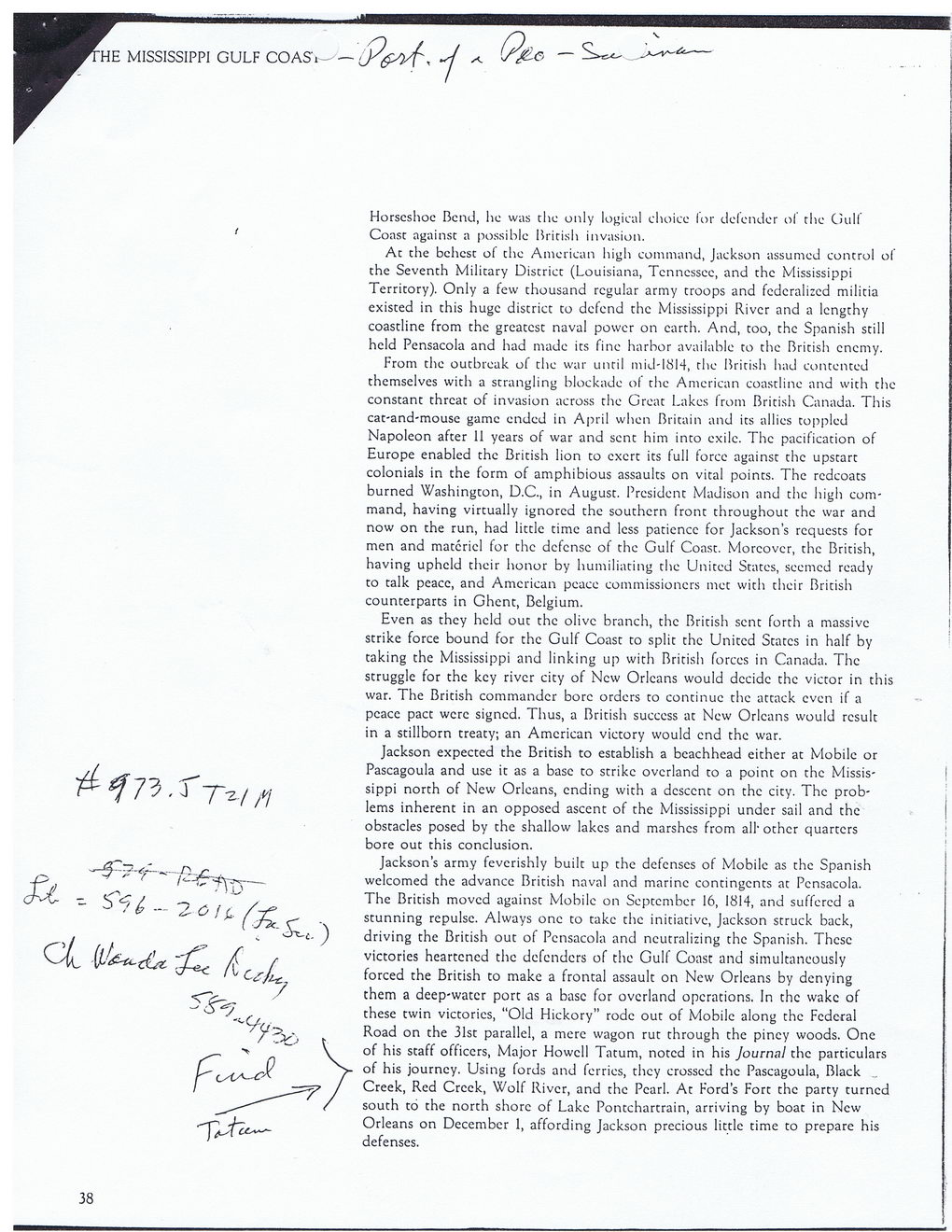This text was obtained via automated optical character recognition.
It has not been edited and may therefore contain several errors.
£t Horseshoe Bend, lie was tlie only logical choice lor delender ol the Gull ' Coast against a possible British invasion. At the behest of the American high command, Jackson assumed control of the Seventh Military District (Louisiana, Tennessee, and the Mississippi Territory). Only a few thousand regular army troops and federalized militia existed in this huge district to defend the Mississippi River and a lengthy coastline from the greatest naval power on earth. And, too, the Spanish still held Pensacola and had made its fine harbor available to the British enemy. From the outbreak of the war until mid-1814, the British had contented themselves with a strangling blockade ol the American coastline and with the constant threat of invasion across the Great Lakes from British Canada. This cat-and-mouse game ended in April when Britain and its allies toppled Napoleon after 11 years of war and sent him into exile. The pacification of Europe enabled the British lion to exert its full force against the upstart colonials in the form of amphibious assaults on vital points. The redcoats burned Washington, D.C., in August. President Madison and the high command, having virtually ignored the southern front throughout the war and now on the run, had little time and less patience for Jackson’s requests for men and materiel for the defense of the Gulf Coast. Moreover, the British, having upheld their honor by humiliating the United States, seemed ready to talk peace, and American peace commissioners met with their British counterparts in Ghent, Belgium. Even as they held out the olive branch, the British sent forth a massive strike force bound for the Gulf Coast to split the United States in half by taking the Mississippi and linking up with British forces in Canada. The struggle for the key river city of New Orleans would decidc the victor in this war. The British commander bore orders to continue the attack even if a peace pact were signed. Thus, a British success at New Orleans would result in a stillborn treaty; an American victory would end the war. Jackson expected the British to establish a beachhead either at Mobile or ,/ Pascagoula and use it as a base to strike overland to a point on the Missis- ^ 7^ - J ~f~'7 / sippi north of New Orleans, ending with a descent on the city. The prob- ' lems inherent in an opposed ascent of the Mississippi under sail and the obstacles posed by the shallow lakes and marshes from all-other quarters bore out this conclusion. <g~-, Jackson’s army feverishly built up the defenses of Mobile as the Spanish ~ welcomed the advance British naval and marine contingents at Pensacola. - ^ The British moved against Mobile on September 16, 1814, and suffered a ! U . stunning repulse. Always one to take the initiative, Jackson struck back, . _ ) driving the British out of Pensacola and neutralizing the Spanish. These (ifc,ft f victories heartened the defenders of the Gulf Coast and simultaneously ^ forced the British to make a frontal assault on New Orleans by denying them a deep-water port as a base for overland operations. In the wake of these twin victories, "Old Hickory" rode out of Mobile along the Federal Road on the 31st parallel, a mere wagon rut through the pincy woods. One of his staff officers, Major Howell Tatum, noted in his Journal the particulars of his journey. Using fords and ferries, they crossed the Pascagoula, Black Creek, Red Creek, Wolf River, and the Pearl. At Ford’s Fort the party turned south to the north shore of Lake Pontchartrain, arriving by boat in New Orleans on December 1, affording Jackson precious little time to prepare his defenses. 38

Old Spanish Trail Document (045)